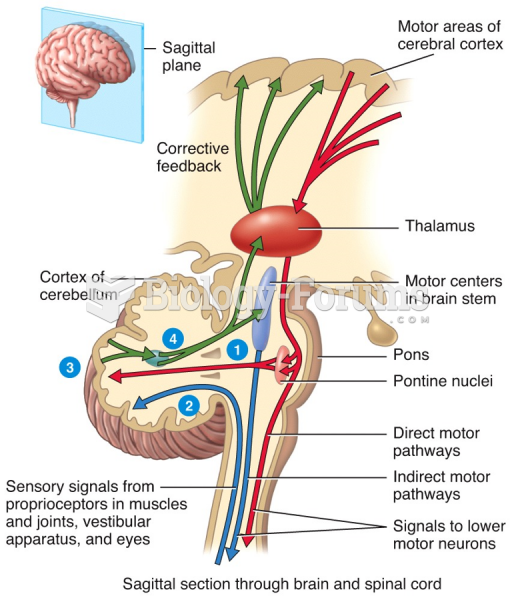|
|
|
The U.S. Preventive Services Task Force recommends that all women age 65 years of age or older should be screened with bone densitometry.
Cyanide works by making the human body unable to use oxygen.
There can actually be a 25-hour time difference between certain locations in the world. The International Date Line passes between the islands of Samoa and American Samoa. It is not a straight line, but "zig-zags" around various island chains. Therefore, Samoa and nearby islands have one date, while American Samoa and nearby islands are one day behind. Daylight saving time is used in some islands, but not in others—further shifting the hours out of sync with natural time.
Cancer has been around as long as humankind, but only in the second half of the twentieth century did the number of cancer cases explode.
The B-complex vitamins and vitamin C are not stored in the body and must be replaced each day.







